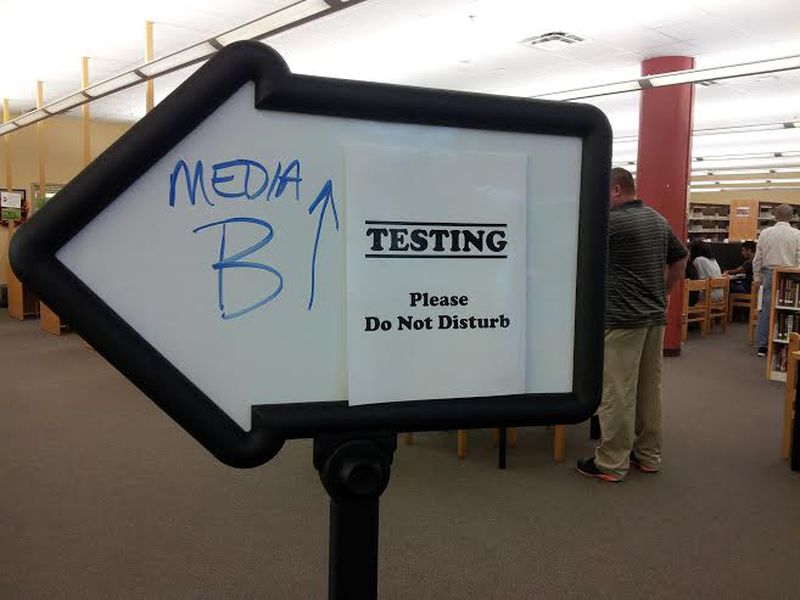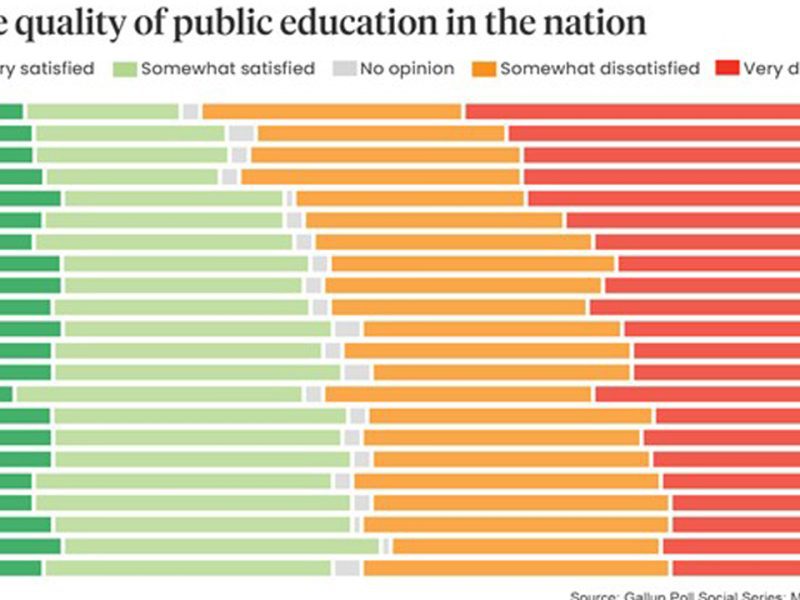
Florida test scores fall, with the ‘COVID slide,’ steepest in math, FSA data shows
Orlando Sentinel | By Leslie Postal | July 29, 2021
Florida students struggled more on the state’s standardized tests this spring compared to counterparts tested before the pandemic struck, with scores dropping most sharply in math, according to data posted online Thursday by the Florida Department of Education.
On the math section of the Florida Standards Assessments, for example, 53% of the fourth-graders scored at or above grade level compared to 64% in 2019, the last time the state-administered its series of exams in math, reading, science and social studies.
Lower scores, blamed on a “COVID slide,” were expected after the coronavirus pandemic upended the academic year and disrupted the education of thousands of students, many of whom studied online for at least some of the 2020-21 school year. Third-grade reading scores, released in June, showed a similar decline.
Because of these challenges, the state waived testing consequences this year, meaning seniors can graduate, third graders can move to fourth and students can earn course grades even if they skipped exams or didn’t pass them.
On the 2021 tests, Central Florida school districts mostly mirrored state trends.
Statewide, in all subjects, smaller percentages of students in 2021 scored at grade level, or passed the exams, compared to 2019. The state canceled its annual battery of standardized tests — the Florida Standards Assessments, or FSA, state science tests and state end-of-course exams — in 2020 when public schools shut down because of the pandemic.
This year, on FSA language arts and reading tests, for example, the percentage of ninth and 10th graders passing fell from 54% two years ago to 50% this year.
On the end-of-course civics exam, typically taken in seventh grade, the percentage passing dropped from 71% to 64%, and on the biology exam 62% passed down from 67% in 2019.
But the drop-off was steepest in math, with 10 percentage point declines on most exams for most grade groups. The percentage of middle-schoolers passing the algebra end-of-course exam, for example, fell from 88% in 2019 to 78% this year.

Walt Griffin, who recently retired as superintendent for the Seminole County school district, had predicted math scores would be lower this year. That’s because parents were likely more comfortable helping with reading lessons when their children were home last spring — when all classes were remote — and if those youngsters did online classes for the 2020-21 school year. Parents typically are more unsure about how to help with math, Griffin had said.
Education Commissioner Richard Corcoran had urged schools to test as many students as possible this spring, asking those doing online classes to come in and sit for exams, so school districts could understand what students had learned, or failed to grasp in the past year.
But some parents objected, saying if they didn’t feel comfortable having their students on campus for classes they didn’t want to send them in to take state exams. About 30% of Florida’s students were studying remotely when testing began.
The number of test-takers did fall, though most students took the exams. This year, for example, nearly 10,000 fewer 10th graders took the FSA language arts exam than in 2019, with 186,374 sitting for the test this year compared to 196,275 two years ago.
Local educators, who’d urged Corcoran to drop high-stakes testing consequences this year, were relieved when he did. But they said the test scores still would provide some useful data, helping to pinpoint academic gaps that need to be filled in this year.
Opponents of high-stakes tests, however, said the data should be disregarded.
“Rather than fixating on the fully expected score declines, Florida education policymakers should focus on providing necessary resources to schools and educators so they can address the academic, social and emotional needs of the kids and families they serve,” said Bob Schaeffer, executive director of FairTest: National Center for Fair & Open Testing, in an emailed statement Thursday.
“Once again, standardized exam scores are not telling us anything useful for improving learning or equity,” he added.
The Florida Department of Education did not immediately respond to a request for comment on the 2021 scores.
This is a breaking story. Check back for updates.





